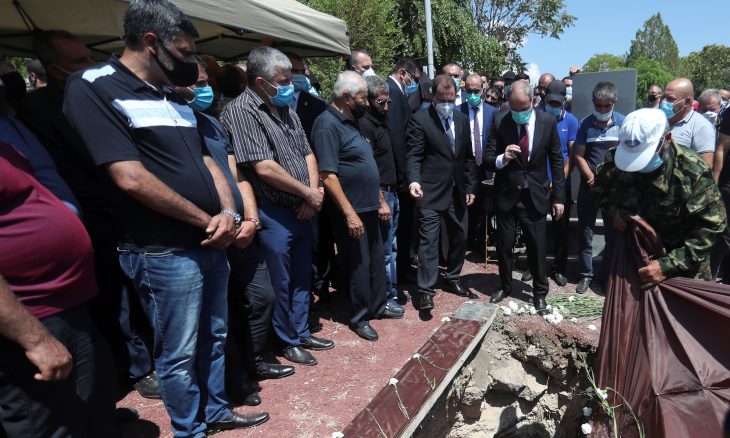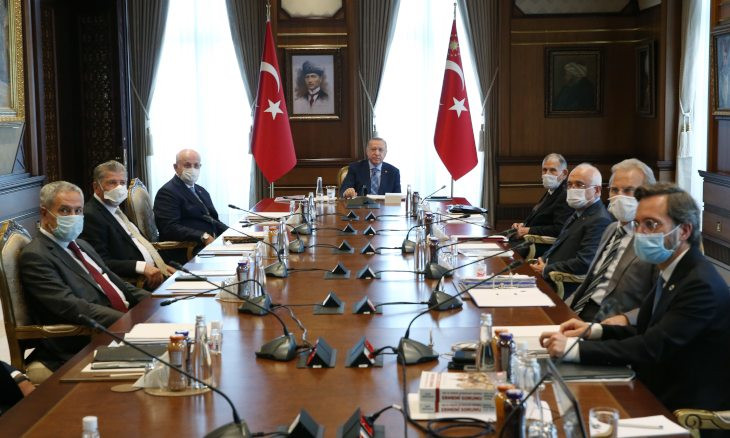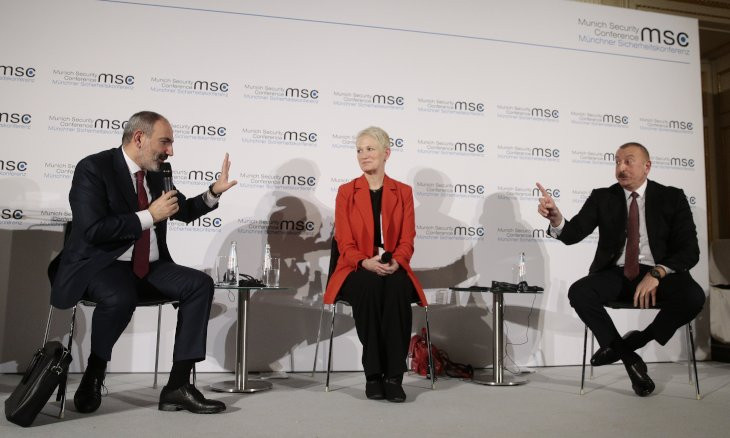Fighting resumes on Armenian-Azerbaijani border after short pause
Azerbaijan and Armenia accused each other of shelling military positions and villages on July 16, breaking a day of ceasefire in border clashes between the two former Soviet republics. Turkey's Foreign Ministry, meanwhile, slammed "Armenia's attacks on Azerbaijan and the smear campaign against Turkey."
Duvar English
Azerbaijan and Armenia accused each other of shelling military positions and villages on July 16, breaking a day of ceasefire in border clashes between the two former Soviet republics.
Eleven Azeri soldiers and a civilian, and four Armenian servicemen, have died since July 12 in renewed conflict between countries who fought a 1990s war in the mountainous Nagorno-Karabakh region.
International concern is heightened because of the threat to stability in a region serving as a corridor for pipelines taking oil and gas from the Caspian Sea to global markets.

Both countries' defense ministries accused the other of firing mortars from before dawn and encroaching on territory, though there were no casualties reported.
It was "the first serious violation of the fragile ceasefire established yesterday," the Armenian ministry said.
 Erdoğan 'ordered establishment of institution to develop new strategies on Armenian Genocide issue'
Erdoğan 'ordered establishment of institution to develop new strategies on Armenian Genocide issue'The neighbours have long been in conflict over Azerbaijan's breakaway, mainly ethnic Armenian region of Nagorno-Karabakh. But the latest flareups are around the Tavush region in northeast Armenia, some 300 km (190 miles) from the enclave.
Ethnic Armenians in Nagorno-Karabakh declared independence during a conflict that broke out as the Soviet Union collapsed in 1991. Though a ceasefire was agreed in 1994, Azerbaijan and Armenia frequently accuse each other of attacks around Nagorno-Karabakh and along the separate Azeri-Armenian frontier.
Turkey slams 'Armenian attack on Azerbaijan'
Turkey's Foreign Ministry, meanwhile, slammed "Armenia's attacks on Azerbaijan and the smear campaign against Turkey."
"This hypocritical attitude of Armenia, which has maintained an illegitimate occupation in the territory of Azerbaijan for many years, clearly and obviously reveals who is the main obstacle to the establishment of permanent peace and stability in the South Caucasus," it said in a statement on July 16.
Turkey said it stands with Baku in these difficult times.
The Foreign Ministry said Armenia's foreign policy based on slander will not be beneficial to anyone.
“This approach is a manifestation of a mentality that creates its identity only from a unilateral understanding of history and tries to justify its unlawful aggression,” it said.
It said this faulty attitude of Armenia that triggers aggressive nationalism is sad, but not surprising.
The ministry added that the Armenian authorities should act wisely and learn as soon as possible to be part of solutions instead of problems in the South Caucasus.
 Armenian, Azerbaijani leaders discuss Nagorno-Karabakh in unprecedented debate
Armenian, Azerbaijani leaders discuss Nagorno-Karabakh in unprecedented debate
